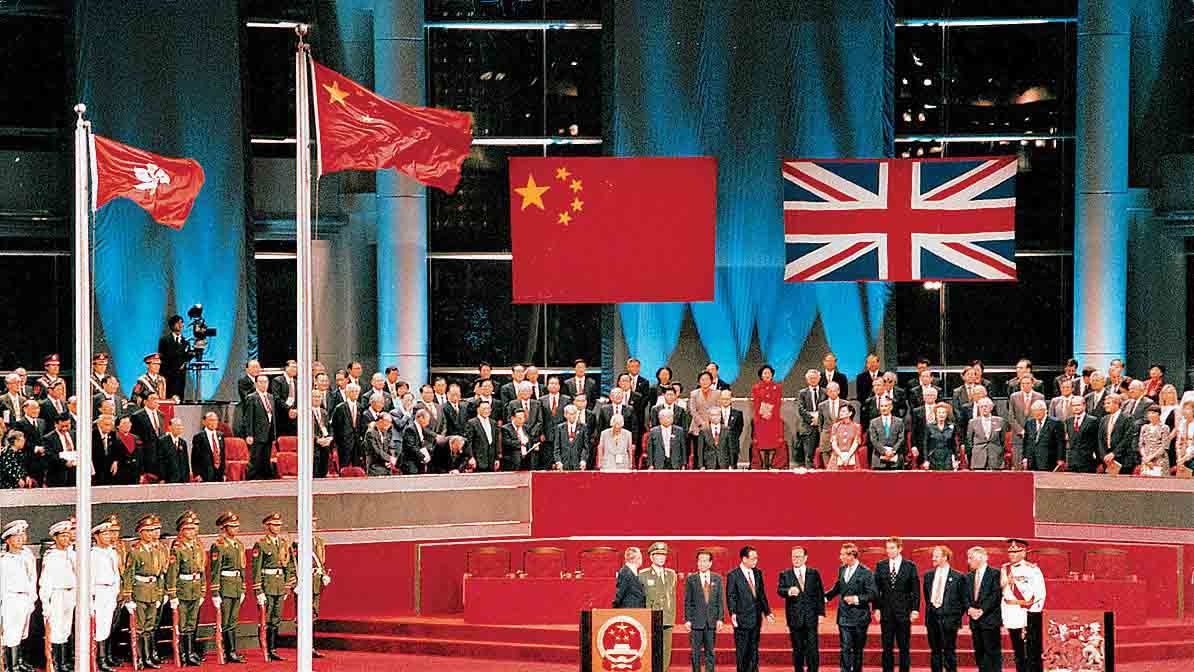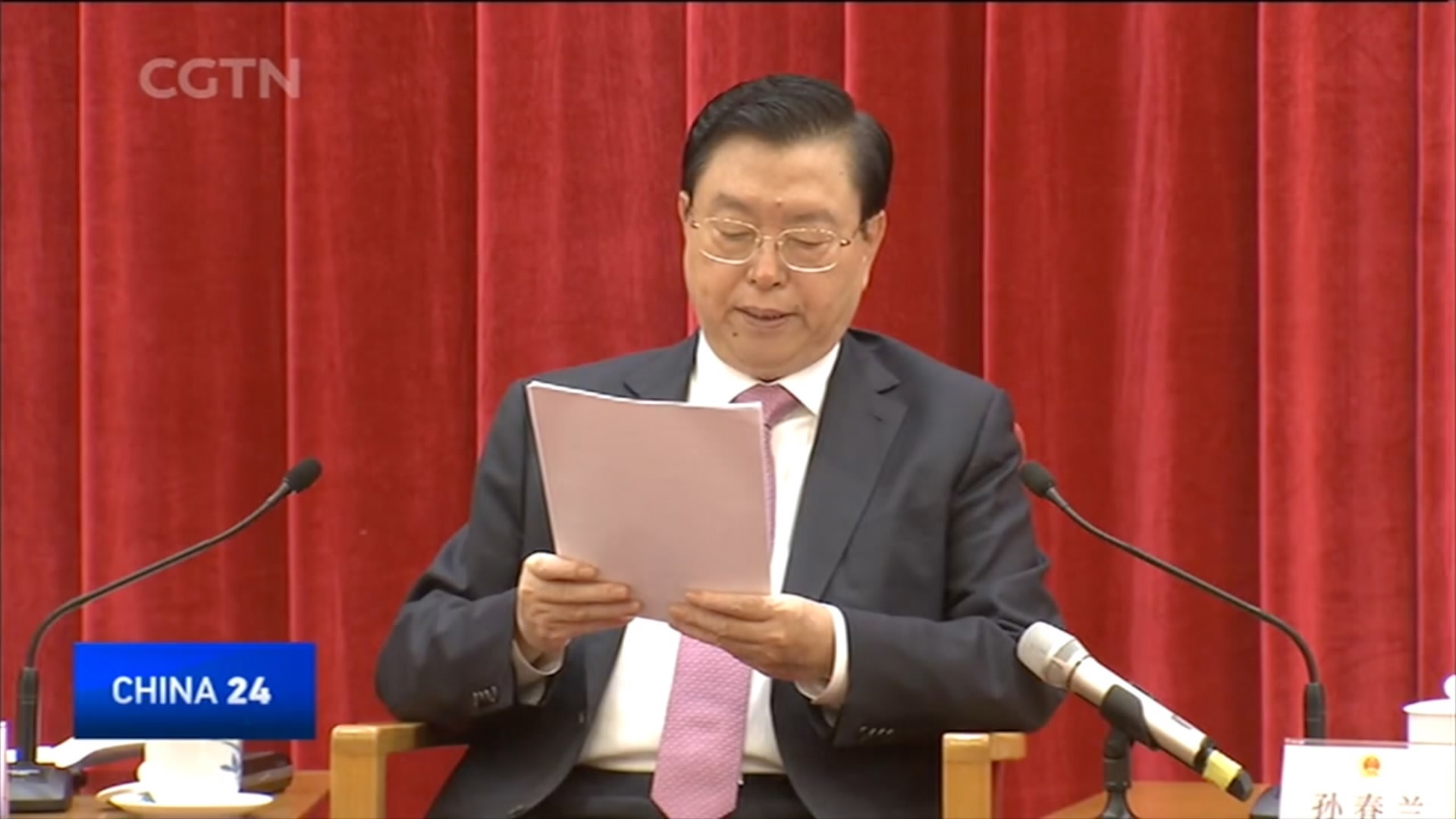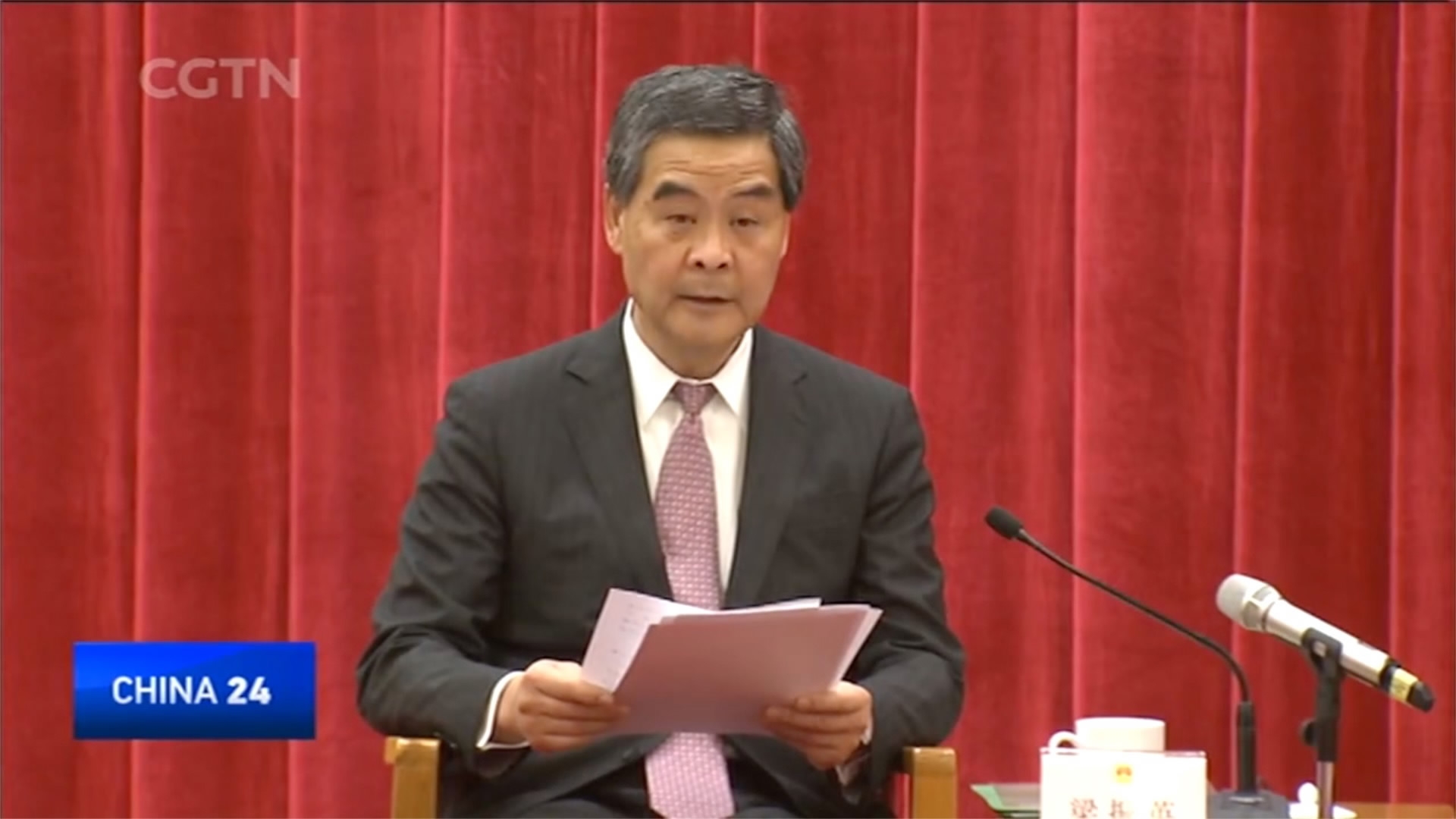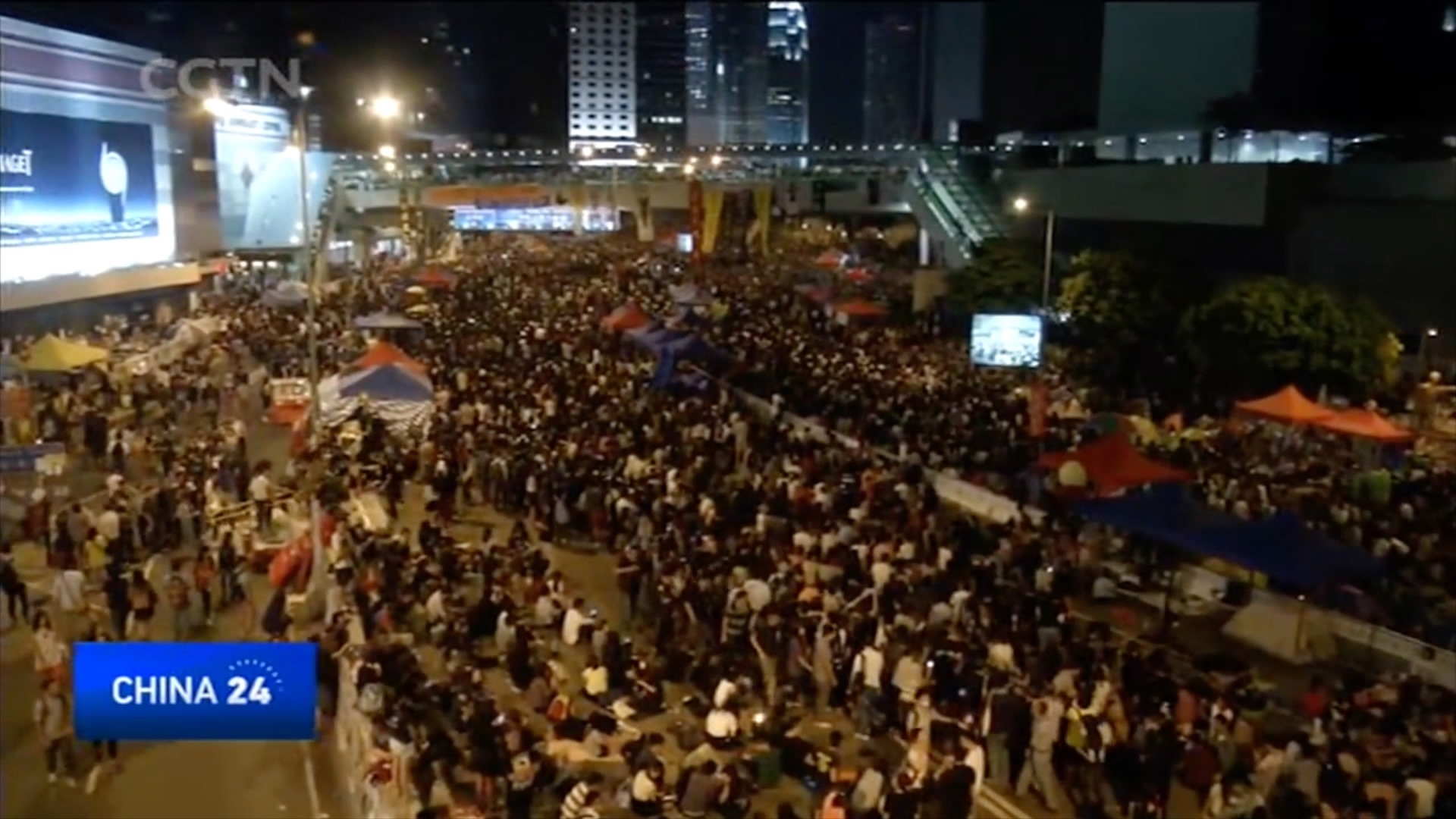
Politics
22:24, 27-May-2017
Top legislator: HK's high degree of autonomy not a tool to challenge Beijing

By CGTN's Han Peng
China's top legislator Zhang Dejiang has warned that a few people in Hong Kong should not confront the central government in the name of a "high degree of autonomy." The remarks came as lawmakers gathered for a high-profile National People's Congress seminar to discuss Hong Kong's Basic Law.
Zhang Dejiang, chairman of the NPC Standing Committee, has made clear that there is no such thing as the "inherent power" of Hong Kong. "The power of the Hong Kong government is delegated by the central government, not separated from it. Under no circumstances should its 'high degree of autonomy' be used as a tool to challenge the power of Beijing," Zhang said.

Zhang Dejiang, chairman of the NPC Standing Committee. /CGTN Screenshot
Zhang Dejiang, chairman of the NPC Standing Committee. /CGTN Screenshot
A drafter of Hong Kong's Basic Law, Tam Yiu-chung, says Zhang's remarks are in accordance with the law's key principles. "Hong Kong's high degree of autonomy is given by Beijing, which means it can also be revoked, though that chance is very small. In the future, Beijing is ready to delegate more power to Hong Kong, if conditions are ripe."
In 2014, the so-called Occupy Central protesters blocked Hong Kong traffic for months, demanding Beijing reduce what they called "interference" in the SAR's politics, particularly in chief executive elections. The city also witnessed a rise in pro-independence movements.

Leung Chun-ying, outgoing Hong Kong chief executive. /CGTN Screenshot
Leung Chun-ying, outgoing Hong Kong chief executive. /CGTN Screenshot
Outgoing Hong Kong Chief Executive Leung Chun-ying says Beijing's rightful exercise of sovereignty over Hong Kong under the Basic Law should not be regarded as "interference." "Hong Kong is part of China, so its degree of autonomy can only be compared with other regional governments, not sovereign states. Meanwhile, Hong Kong's high degree of autonomy is delegated by the central government, which means Beijing still holds the power to appoint a chief executive," Leung added.
Zhang Dejiang also said that according to the Basic Law, there is no separation of powers in Hong Kong between the executive, judicial and legislative branches. "It is an executive-led system with the chief executive at its core. The chief executive is accountable to both the central government and Hong Kong."

CGTN Screenshot
CGTN Screenshot
Since its return in 1997, Hong Kong has enjoyed a considerable amount of autonomy under the Basic Law. Its judicial system is responsible for interpreting laws, and its legislative council holds independent elections for its members. The region also has the power to issue its own currency.
Ahead of the 20th anniversary of Hong Kong's return, legislators say it is necessary to refute some misperceptions about the Basic Law, so as to make sure its implementation will not be distorted for decades to come.
1969km

SITEMAP
Copyright © 2018 CGTN. Beijing ICP prepared NO.16065310-3
Copyright © 2018 CGTN. Beijing ICP prepared NO.16065310-3